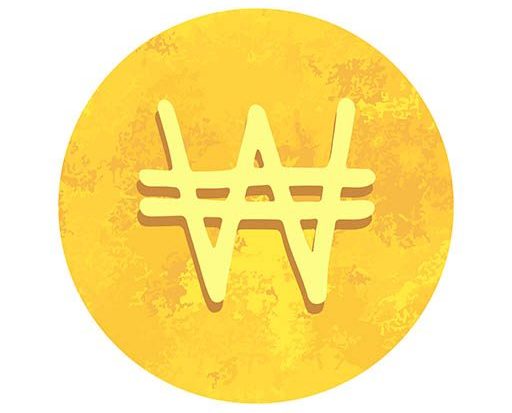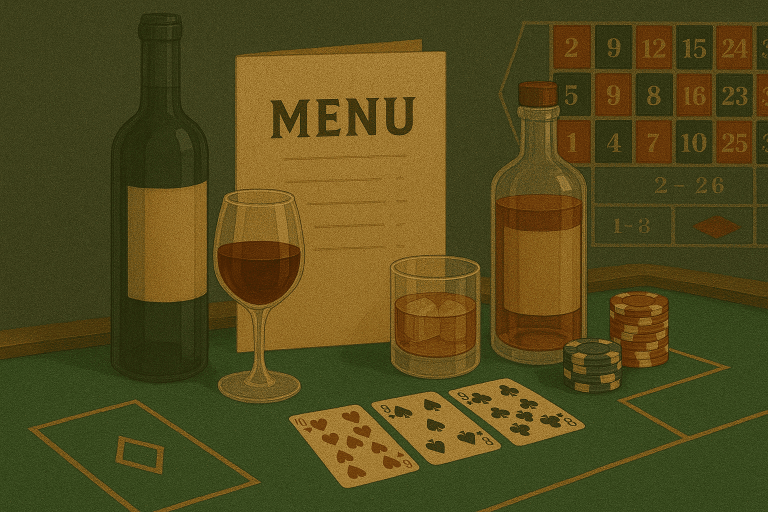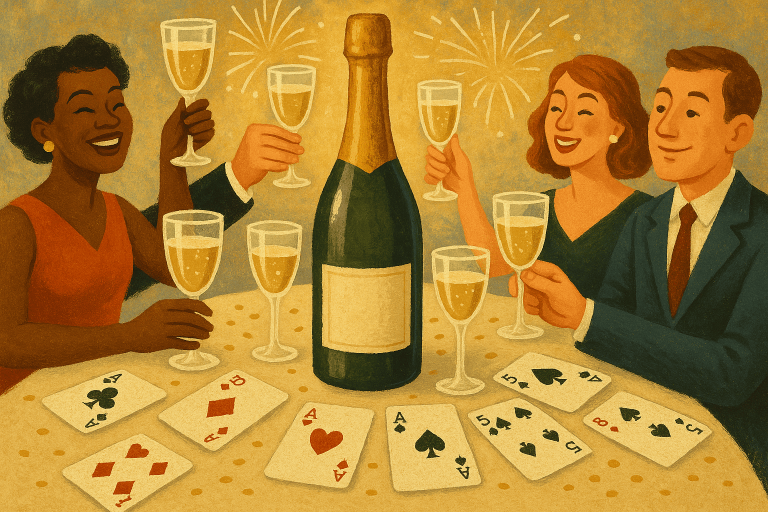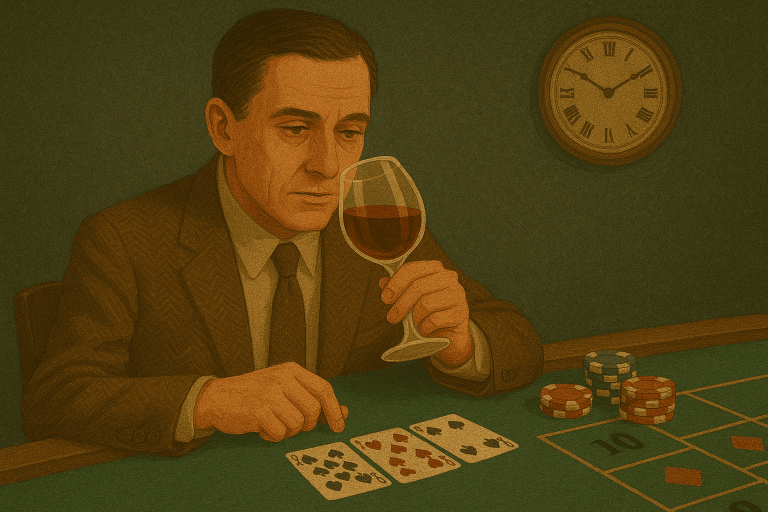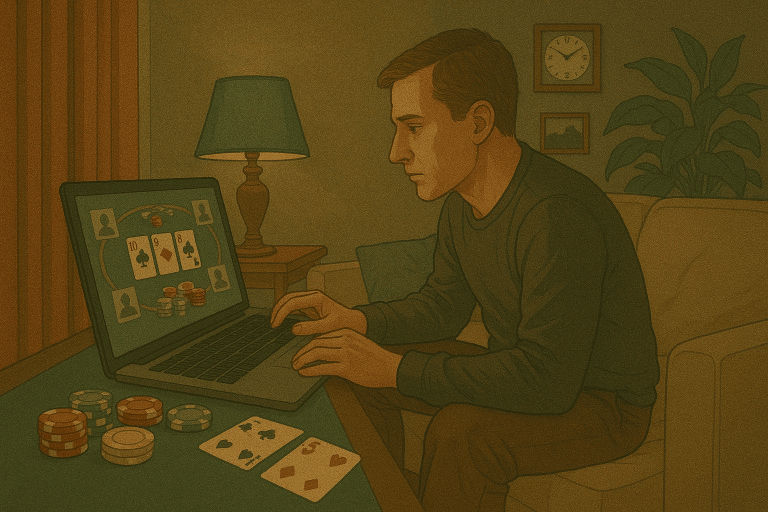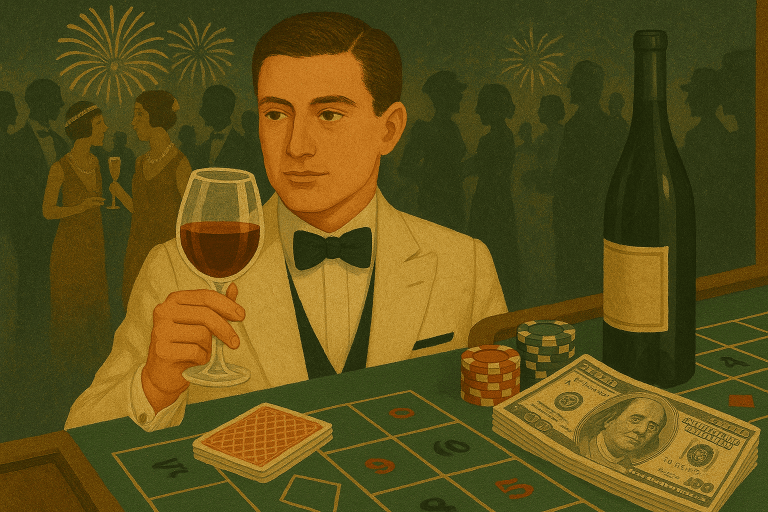Wine and Risk: The Art of Choosing the Unknown
The seduction of uncertainty
Wine and gambling might seem like distant cousins—one born of nature and tradition, the other shaped by numbers and neon lights. But they share one essential element: the thrill of the unknown. A glass of wine is never just a drink; it’s a mystery unfolding. Every bottle carries the possibility of surprise, delight, or even disappointment. Much like placing a bet.
This shared thrill taps into something deep and ancient. Humans have always played with uncertainty. From casting lots in ancient temples to swirling wine in a crystal glass, the essence is the same: surrendering to an experience with no guarantee.
Sipping a new vintage without knowing its notes is no less of a gamble than choosing red on a roulette wheel. Both acts require surrender—to time, to chance, to instinct. This surrender is not weakness, but a cultivated strength.
Trusting your senses—and your instincts
Consider the way a sommelier approaches a glass: with reverence, but also with analysis. The color offers a hint. The aroma tells a story. The taste confirms or contradicts expectations. It’s a process of deduction, of refined guessing.
Now imagine a poker player, eyes fixed on the table. Their instincts sharpened by years of subtle cues: a twitch, a pause, a breath. They don’t know the outcome—but they feel it. Both wine tasting and gambling demand a curious mix of logic and gut.
When you learn to read flavor, you train your attention. When you learn to read people, you train your courage. The common thread? Risk meets ritual. Over time, this develops into a kind of elegance: a way of interacting with uncertainty that is almost meditative.
Great wine lovers often speak of harmony. Great players speak of rhythm. Both search for flow. And in this flow, they discover something rare: a space where reason and intuition dance.
The ritual of risk
Wine tasting isn’t just about drinking. It’s about ceremony: the right glass, the right temperature, the right pause before the first sip. There is patience involved—almost reverence. Casinos, too, have their unspoken etiquette. The way chips are placed. The silent glance between dealer and player. The rhythm of bets rising and falling.
And then there are personal superstitions. A wine lover might always start from the leftmost glass. A blackjack player might tap twice before hitting. Ritual creates rhythm—and rhythm gives us the illusion of control in chaotic spaces.
These rituals aren’t irrational. They are psychological anchors. They allow our minds to take bold steps by grounding them in something familiar. In that sense, they’re not so different from mindfulness practices—only with higher stakes.
Even the surroundings matter. The lighting of a wine bar or an online poker room, the background music, the texture of the table or glass. Every detail becomes part of the experience.
Embracing the beautiful unknown
We live in a world obsessed with certainty. Algorithms, forecasts, insurance. And yet, we crave unpredictability. We find it in stories, in love, in art—and yes, in wine and chance.
Opening an unfamiliar bottle or joining a new online poker table taps into the same human hunger: to feel something new. To gamble not just money, but expectation.
There’s something magical about placing yourself in a moment where anything can happen. Not everything has to be planned. Some of the richest pleasures in life come from accidents—when we allow ourselves to be surprised.
And what we learn in those moments can echo far beyond them. Risk sharpens our senses. It teaches humility. And it reminds us that we’re alive.
Learning through uncertainty
There is no failure in a bad bottle of wine—only learning. Similarly, a lost hand at poker is not a loss, but data. Information. Experience.
A person who never risks never evolves. They miss the nuances, the curveballs, the opportunities to grow. Whether at the tasting table or the betting screen, every attempt builds intuition.
Conclusion: What wine teaches us about risk
Wine doesn’t preach. It teaches by example. It shows us how to wait. How to taste. How to enjoy ambiguity. These are precisely the skills that benefit any gambler—not just in casinos, but in life.
To embrace the unknown is to trust yourself. To find pleasure in risk is to understand the limits of prediction. And whether your table is covered in cards or glasses, the real prize is the experience itself.
In the end, the gambler and the wine lover are not opposites, but twins—curious, bold, and ever in pursuit of the next meaningful moment.
